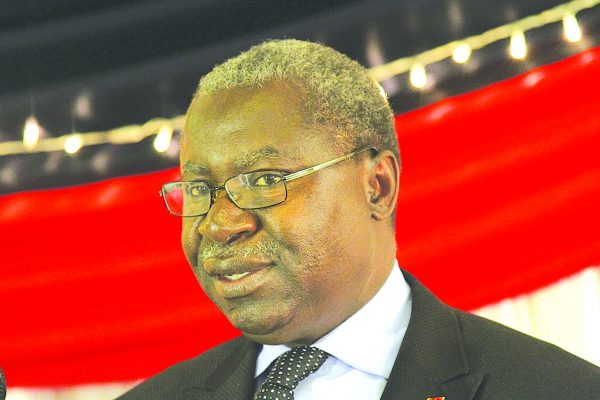
FUEL prices have gone up significantly across the country in the past few days and government says there is nothing it can do about the crisis.
BY TATIRA ZWINOIRA/ SILAS NKALA/ STEPHEN CHIDENGA/ TATENDA CHITAGU
The price of petrol and diesel has risen by as much as eight cents per litre, from $1,40 for petrol to as much as $1,48 in some parts of the country in the past fortnight.
In Harare, most fuel stations increased their prices by an average of one to two cents from $1,40 to $1,41 for petrol and $1,26 to $1,28 per litre for diesel.
Energy and Power Development secretary Patson Mbiriri told Standardbusiness on Friday that government was unable to do anything about the fuel prices due to the rise in free on board (FOB) prices.
He said Zimbabwe was unable to protect consumers through subsidies as was the case in neighbouring countries.
“It is an FOB issue. It is an international pricing issue. It has nothing to do with local conditions or factors, it is an FOB issue,” he said.
“The international price for fuel has been going up and this has been worsened by the recent decision to reinstate sanctions on Iran, so it has nothing to do with the local situation or factors. It is an international price adjustment issue as I have said.”
- Chamisa under fire over US$120K donation
- Mavhunga puts DeMbare into Chibuku quarterfinals
- Pension funds bet on Cabora Bassa oilfields
- Councils defy govt fire tender directive
Keep Reading
Mbiriri said fuel was more expensive in Zimbabwe compared to other countries because there were no subsidies.
“South Africa has a fund from where they cushion consumers when there is an upward adjustment of prices,” he said.
“They have a national fund which they use whenever there is a price increase to cushion motorists against significant increases and it is the only (country) in the region (with such a facility).”
He said Zimbabwe could not follow suit “at this point in time because that would require that we first raise the fuel price in order to mobilise for such a fund. “So you will be adding a few cents onto the existing price in order for that fund to accumulate a significant amount.”
Malawi also has such a fund, which caters for fuel prices but the fund is not raised in the manner Mbiriri suggested.
It is a separate allocation of government revenue set aside specifically to cater for any price rises in fuel.
As a result of this, fuel prices in Malawi have not changed since July 2017 as the price stabilisation fund allows protection against any rise in the country’s fuel cost build-up, buttressed by its currency strengthening.
Mbiriri said reducing excise duty on fuel depended on the Ministry of Finance and other government agencies as it involved revenue.
While fuel prices were set at $1,41 and $1,28 for a litre of petrol and diesel respectively around the capital as of Friday, elsewhere across the country, prices have ballooned significantly with indications Harare could find itself under the same high price regime come tomorrow.
The shortages have since forced the central bank to, as of last week, increase foreign exchange allocation for fuel from $12 million to $20 million per week.
Reserve Bank of Zimbabwe governor John Mangudya said the increase in the forex allocation was meant to cater for what he described as a rise in demand for fuel.
Service stations in Bulawayo were on Friday selling fuel at different prices, but were generally at a higher price compared to the previous week.
A survey done by Standardbusiness in Bulawayo established that the service station with most expensive fuel was selling petrol at $1,47 per litre while diesel sold at $1,34 per litre, translating to a six cents increment from last week.
In Gweru, prices had skyrocketed with petrol and diesel was going for as high as $1,46 and $1,32, respectively. This was a five and four cents increase in the price of petrol and diesel respectively.
In Masvingo, the most expensive service station was selling petrol at $1,42 while diesel was going for $1,28 per litre.
Confederation of Zimbabwe Industries president Sifelani Jabangwe warned that manufacturers might be forced to increase prices of their products due to high fuel costs.
“There will be an increase in costs but it is affecting everyone throughout the world, so in terms of affecting only our competitiveness it may not be that significant,” he said.
“But, of course, we hope government will be able to reduce the level of excise duty. as you know, it is a percentage of the base price, which means now they could be collecting more than they were collecting before because the base price would have gone up.”
Analysts said the effect of the fuel price increase on the cost structures of manufacturers would have a ripple effect across the economy leading to high prices and increased inflation.











